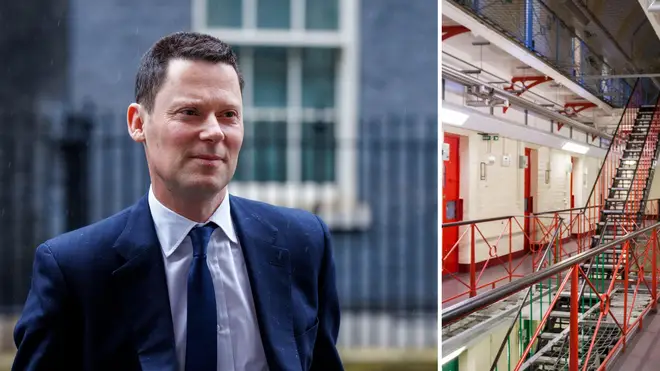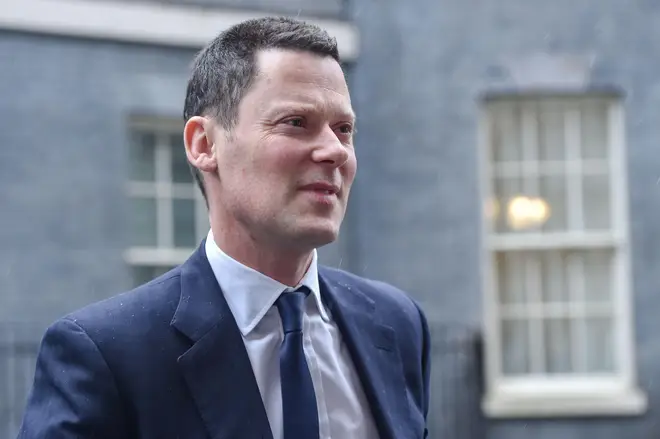
Richard Spurr 1am - 4am
22 March 2024, 09:34

Short sentences for low-level criminals just mean that the taxpayer has to fork out for "their bed and breakfast", the Justice Secretary has said.
Alex Chalk has said scrapping shorter prison sentences is necessary to save the taxpayer nearly £50,000 per prisoner, per year.
Speaking to LBC, Mr Chalk suggested that low-level criminals should be rehabilitated where possible instead, while also keeping more serious offenders behind bars for longer.
He said: “What I want to do is make sure we pull on every lever, which is to increase the supply of prison places, that's absolutely right.

Natasha Clark and Alex Chalk on "punishment in the community"
“But also make sure so that the really scary, dangerous people have got to be locked up for longer, people we can rehabilitate should rehabilitate, and punish in the community.
“Because if you did that, right, it's not just that society is having the original offence, but if they're banged up for very short sentences, then society is also having to pay for Bed and Breakfast at a cost of £47, £48,000 a year.”
It comes after the sentencing bill was announced in the autumn of last year in response to the overcrowding crisis in prisons.

The bill would mean offenders who are handed sentences of under 12 months would avoid jail and instead be given suspended sentences and community punishments in a bid to free up space in prisons.
However, the bill was stalled in December last year after several Tory MPs called for the legislation to be toughened up.
But Mr Chalk last week urged Downing Street to get a move on with pushing the legislation through, as he told Mr Sunak’s chief of staff: “Pass the bill or start releasing people early. Those are your only choices.”
He warned the Prime Minister that failing to make headway on the legislation could see prisons running out of space by Easter.
Mr Chalk added: “We believe as a general principle, you should lock up the most dangerous people for longer.
“But those people who are lower risk, of course you have got to punish them. But you must use the evidence and use that technology.
“For example, when I was prosecuting, when I was prosecuting rapes and murders as a barrister, we did not have the level of technology that we have got now.
“There are tags available, which can monitor for example, whether you are drinking alcohol. Given that alcohol is at the heart so much offending.”

Some 43 Tory MPs had signed four amendments designed to toughen up the Sentencing bill, including former home secretary Suella Braverman.
Ms Braverman tabled four amendments to the bill, one of the proposed changes included a mandatory two-year prison sentence for prolific offenders.
The former home secretary warned that without the amendments the bill would lead to an increase in crime and “put public safety at risk” without the threat of prison sentences for some offenders.
A spokesman for the Ministry of Justice said the government remains committed to passing the legislation.
They said: “We will always ensure there is enough capacity to serve the outcome of the courts and keep dangerous offenders behind bars and are delivering the biggest prison estate expansion programme since the Victorian era to help rehabilitate offenders and keep our streets safe.
“We are committed to passing the Sentencing Bill as soon as parliamentary time allows, which will ensure the most horrific murderers who kill with sexual or sadistic conduct face life in prison, force rapists to spend every day of their custodial sentence behind bars and help reduce reoffending through greater use of tougher community sentences.”
The government has not yet confirmed when the Sentencing Bill will return to the Commons.